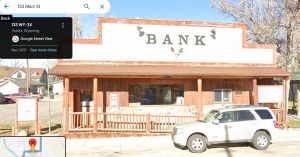Money Laundering
Main Street banks can have Big City financial crime risks
• 0 minute read
August 6, 2025

The United States Department of the Treasury’s guiding principles for Bank Secrecy Act modernisation lean into the idea that “Main Street” financial institutions such as community banks and credit unions have a limited financial crime risk profile.
However, it has always been the case that small town banks can have “Big City” financial crime risks, precisely because many already devote fewer resources to anti-money laundering/combating the financing of terrorism (AML/CFT) systems and controls.
Indeed, there are recent examples of smaller banks underestimating their financial crime risk exposure when seeking to expand their digital presence. In one extreme case, for instance, a federal credit union was taken over by criminals operating an illegal Bitcoin exchange.
Balancing costs and benefits
Yet Michael Faulkender, deputy secretary of the Treasury, told the Bank Secrecy Act Advisory Group (BSAAG) plenary meeting in June, that the US will seek to change its “AML/CFT status quo” to focus on national security priorities and “highest risk areas”, and explicitly allow banks to “de-prioritise lower risks”.
“Financial institutions must be permitted to direct more attention and resources toward higher-risk customers and activities, consistent with an institution’s risk profile, rather than toward lower-risk customers and activities,” he said.
The Trump administration wants to include more small community banks in the BSA reform conversation to best inform an “appropriate balance between costs and benefits”, he added. Faulkender broadly suggested that smaller institutions should not be saddled with big costs for AML systems and controls they do not really need.
Vulnerable
However, smaller banks are vulnerable to financial crime, particularly because their AML/CFT controls are limited — which can result in substandard financial crime risk assessments and insufficient transaction monitoring. The assumption that a small-town bank is virtually risk-free in financial crime terms is misguided.
“In reality, the risks to smaller institutions as opposed to big banks are not necessarily higher or lower — they are just different,” wrote Kevin Sherwood on ACAMS Today in 2020. He argued that geographical location can play a role in financial institutions’ money laundering risk, regardless of size. For example, institutions located in coastal regions or along international borders may be more exposed to financial crime risk.
Community banks’ smaller operations require employees to “wear more hats”, and that “broader scope may make it harder for them to focus on money laundering issues or to spend time following an uncertain money trail that may ultimately lead to a money laundering or terrorist financing plot”, Sherwood said.
Summit National Bank case
Over the past 18 months, US Office of the Comptroller of the Currency (OCC) enforcement actions for BSA/AML compliance deficiencies unearthed fundamental weaknesses at smaller US banks. Some of these cases arose at smaller banks seeking to enter the fintech sector whose partners lacked the expertise and resources to manage the increased BSA/AML or sanctions risk profile. It is a risk the OCC and other US bank regulators continue to highlight.

One such example is Summit National Bank in Hulett, Wyoming, population 341. In late 2022, the Bulgarian crypto company Nexo acquired a stake in Hulett Bancorp, Summit National Bank’s holding company. Hulett Bancorp then changed its name to Mode Eleven Bancorp, according to a press release.
The aim was to transform Summit National Bank into a modern digital fintech by using Nexo’s expertise and “advanced digital asset products to bridge Web3 and traditional finance”. Nexo was to be the bank’s preferred partner for digital asset innovation, expanding both firms’ capabilities and markets.
“This investment marks another landmark in Nexo’s relentless drive to better serve our US customers in compliance with the constantly evolving regulatory landscape,’’ said Kalin Metodiev, Nexo co-founder and managing partner, in the release. Metodiev was appointed to the Summit National Bank and Mode Eleven boards.
Victor Remsha, a well-known Russian banker who is chief executive of Finam Global in Moscow, remains a director of Mode Eleven’s board, according to Wyoming state business records. As of January 1, 2023, state records show Kirill Evstratov, a Cypriot, who is a person with significant control at UK payments and crypto business Unlimint UK Ltd, was also a director. The holding company also had an Austrian director in 2023, according to the 2023 state filing.
Cease and desist leads to Chapter 11
Despite the Nexo investment and involvement of experience financial services professionals, the OCC issued a cease-and-desist order essentially prohibiting Summit National Bank from pursuing its planned fintech business.
The OCC found the bank did not have a reasonably established and designed BSA/AML programme. It also had failings throughout its risk management and compliance, including “unsafe and unsound practices” related to capital and strategic planning, liquidity risk management, transactions with affiliates, and accounting.
The Board of Governors of the Federal Reserve System (Federal Reserve) imposed a cease-and-desist order on Mode Eleven Bancorp, Summit’s registered bank holding company, for the same reasons.
Mode Eleven filed for bankruptcy on June 9, according to court filings seeking permission to sell its assets. The filing outlines Mode Eleven’s fintech ambitions and subsequent regulatory issues and enforcement actions, as well as its attempt to raise $10-$20 million to fund the mandatory compliance overhaul and capital requirements. That fundraising failed and the bank is now seeking a buyer to preserve its assets, the document said.
There is no suggestion of wrongdoing by Mode Eleven or its directors.
John Miller, president of Mode Eleven Bancorp and Summit National Bank declined to comment for this article.
Illegal Bitcoin exchange took over a credit union
There are many instances where unscrupulous credit union executives and employees have engaged in embezzlement and other types of fraud.
However, a 2017 case in the Southern District of New York was exceptional in that it involved an illegal Bitcoin exchange called Coin.mx, a multi-million-dollar money laundering scheme, and payment of bribes by the exchange to a small New Jersey credit union’s chairman, effectively to take it over and continue its laundering scheme.
When financial institutions caught on to Coin.mx’s laundering scheme, its operators, Yuri Lebedev and Anthony Murgio, in a bid to continue laundering, gained control of the Helping Other People Excel Federal Credit Union (HOPE FCU) in Lakewood, New Jersey, serving primarily low-income members.
According to a US Department of Justice press release, “after making more than $150,000 in illegal bribes at the direction of Trevon Gross, the then-chairman and CEO of HOPE FCU, Murgio and his co-conspirators took control of HOPE FCU”.
It added: “With Gross’s assistance, Murgio installed various co-conspirators on HOPE FCU’s board of directors and transferred Coin.mx’s banking operations to HOPE FCU. Gross also ceded operational control of the credit union to the board members installed by Murgio. Thereafter, Murgio and others worked to process tens of millions of dollars of automated clearing house (ACH) transactions through the credit union without adequate controls, thus putting its financial condition at risk.”
Murgio and Lebedev also obstructed a National Credit Union Administration (NCUA) examination of HOPE FCU, and made false statements to the NCUA to continue their control of the credit union. Murgio pleaded guilty and received a one-year probation and a $12,000 fine. Lebedev was sentenced to 16 months in prison, while Gross was given a 60-month sentence for accepting a bribe.